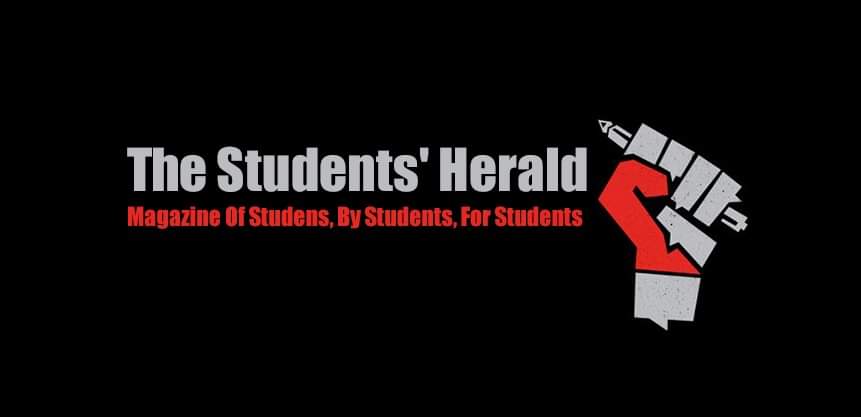By: Ali Raza
I am a Hazara; not only my identity but probably, my biggest mistake. I reside in Balochistan; a city claimed to be terrorized by Indian intelligence agencies (RAW) and others.
What do you think about how I react when the news of any targeted bombing reaches me. How many times have the Hazara community been attacked in the last twenty years ? What do you imagine is the mental state of those who have faced suicide attacks and targeted bombings for two decades? What do you think about this plight of the Hazaras?
Balochistan is the largest province by area. It is known as the land of minerals and natural resources. But the irony is that the land itself is deprived even from the very basic necessities of life i.e. health, education, security and most importantly, life itself. Where there are no basic needs, how can one imagine freedom of speech and expression.
I was 15 when my parents sent me to Karachi in order to make me feel safer than my hometown. I was later sent to Lahore because of the new reports of the brutalities of MQM in Karachi. This was all so that I could get a higher education. I have been in Lahore since 2016, but my heart still lives in Balochistan. I still hear about the killing of my community members; of taxi drivers, shop owners, tea stall owners, vegetable sellers, old civilians, women and children. A cloud of fear and anxiety is over me all the time. Peace here is defined as a break between two targeted attacks, not a state of social harmony and well-being. These killings of the Hazaras; whether they are poor coal-miners or innocent women and children, makes my heart scream out of intense grief and worry for my family still living inside the city of terror.
I always think that aren’t we tax-payers. Aren’t we law-abiding citizens? Do not we love Pakistan? Don’t we contribute to the progress of this country? Don’t we come under the definition of citizens of Pakistan who are entitled to right of life, security, freedom of movement, speech, expression, education, and religion? Is not our safety a responsibility of the state, our civil and political rights protected by the provisions of the constitution and the international convention on civil and political rights? Are not we the first class citizens of Pakistan? Are not the law enforcement agencies designated for our protection?
If yes, we deserve to enjoy free movement within and outside Balochistan. We deserve to not be ghettoized in the name of security. We deserve to take a stand for our right to life and security.
Now for example, you use a service from a mobile company and pay for it. The company later does not provide efficient service. In this case, we are legally required to make complaints against the company through its administration and the court of law. To resolve our complaints, the company has to provide satisfactory services and fix the errors? What if the same company kills or abducts you when you complain?
Under the Pakistani Constitution and Penal Code, sedation and treason is not defined by criticizing governmental organizations for their ineffective performance and incompetency. This is terrifying. If the law protects this right, so what is happening in Pakistan and Balochistan?
Whenever I read the history of Pakistan, I feel calm and not so alone. These “unknown attackers” are the same “unknown” who left Mr. Jinnah’s (father of the nation) ambulance on the midst of a road for two hours, in his last breaths, only for him to die. These “unknown killers” are generational. These “unknown” privileged people blame us (Balochistanis) as “traitors”. These “unknown” were those who blamed Fatima Jinnah as the traitor during her election campaign. It makes me feel proud to be treated the same way by them as Lady Fatima Jinnah and Mr. Quaid-e- Azam Muhammad Ali Jinnah.
The Hazara community faced a genocide by Ameer Abdul Rehman in the 1890s. Ameer Abdul Rehman killed more than 2 million Hazara people in the heart of Afghanistan. Back then, there was no law or international convention, but today in Pakistan there are laws and a judicial system, but there is no justice. No justice for the innocent Hazaras, between the ages of one-year children to 70 year old citizens and poor women, no justice for widows and the orphans who lost their sole bread earners. We have been always a soft target for any terrorist attacks in the name of Shia hatred and “kufr”. Are we the only Shias living in Pakistan to be hunted by terrorist organizations? Is “kufr” a label which is allowed to be used on any one by any sect, without any due process of law?
We are deprived from most of our fundamental rights. Our demands from the state are not to provide us with job security or financial aid; but to ensure our security and a guarantee of not being killed; the guarantee to live like other citizens of Pakistan, without ghettoization, without fear, without the sword of death and uncertainty. This is the plight of the ghettoized Hazaras, the plight of the oppressed Hazaras, the plight of the innocent and peaceful Hazaras.


